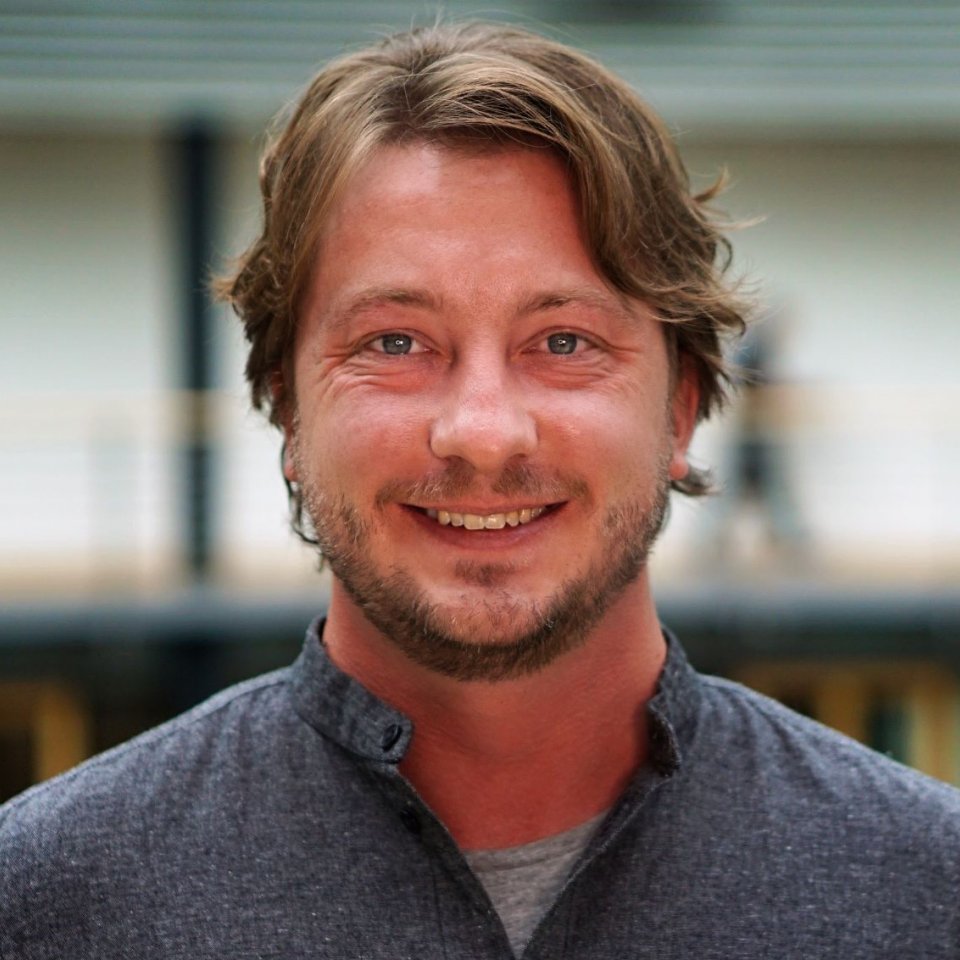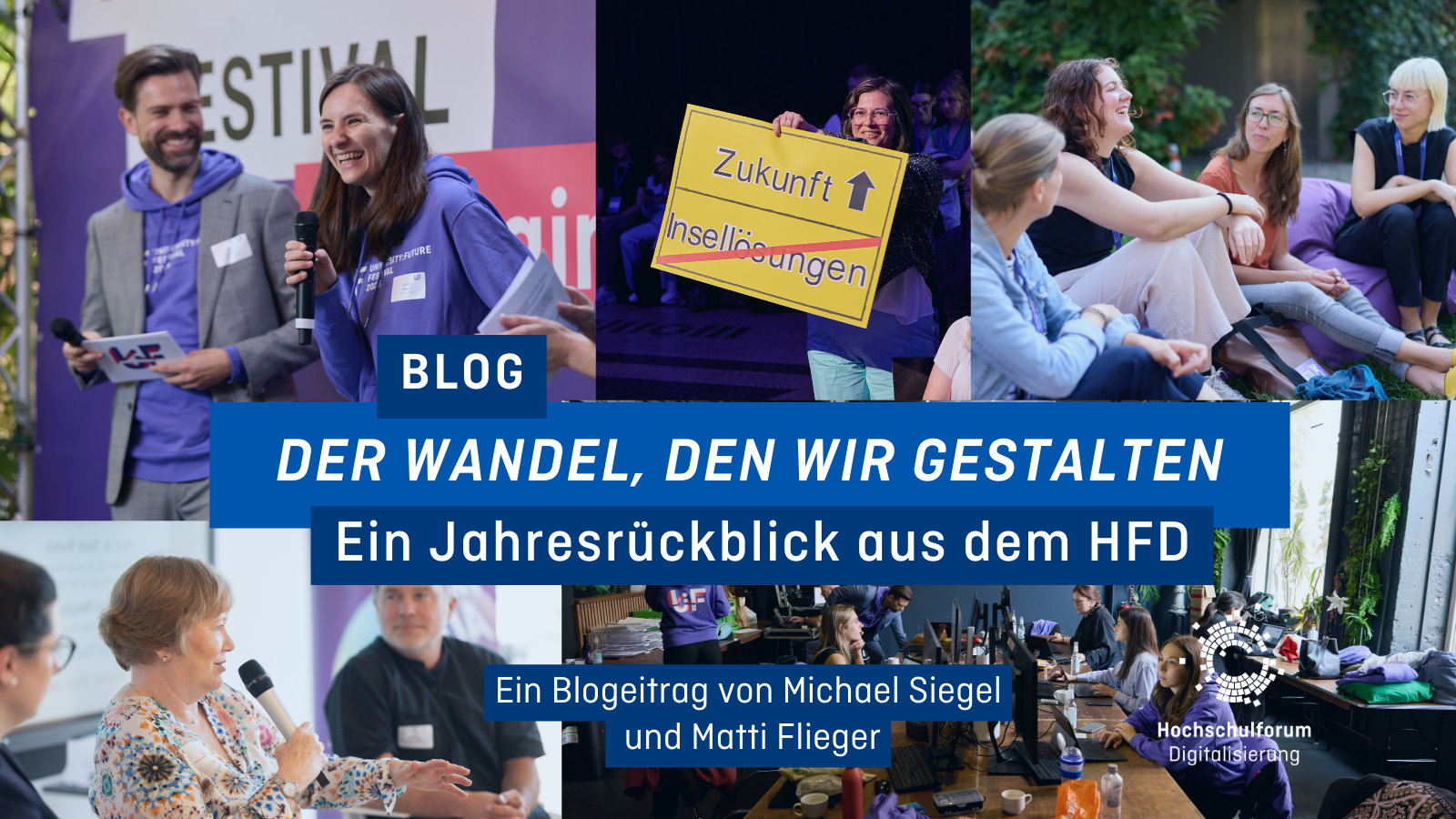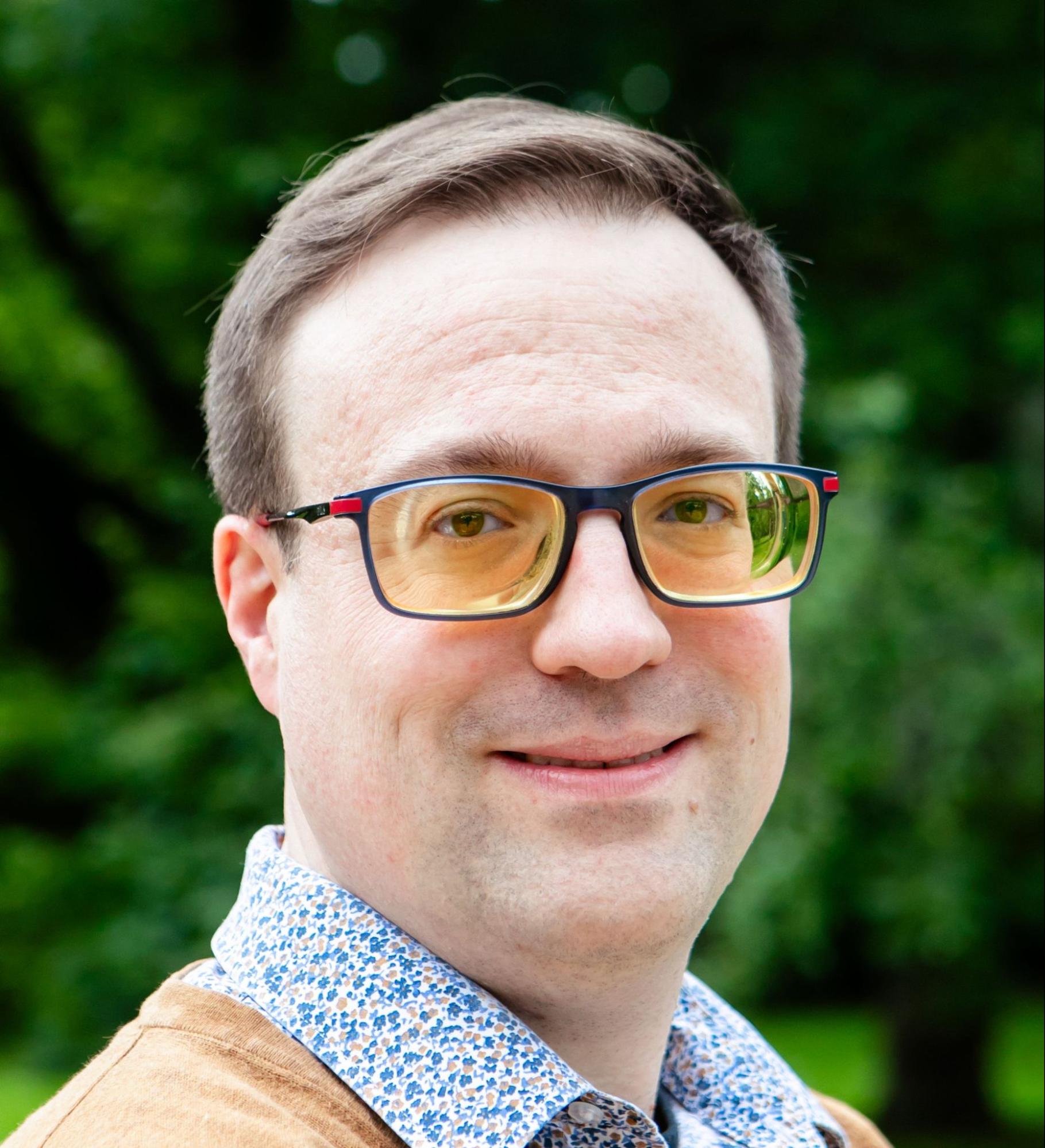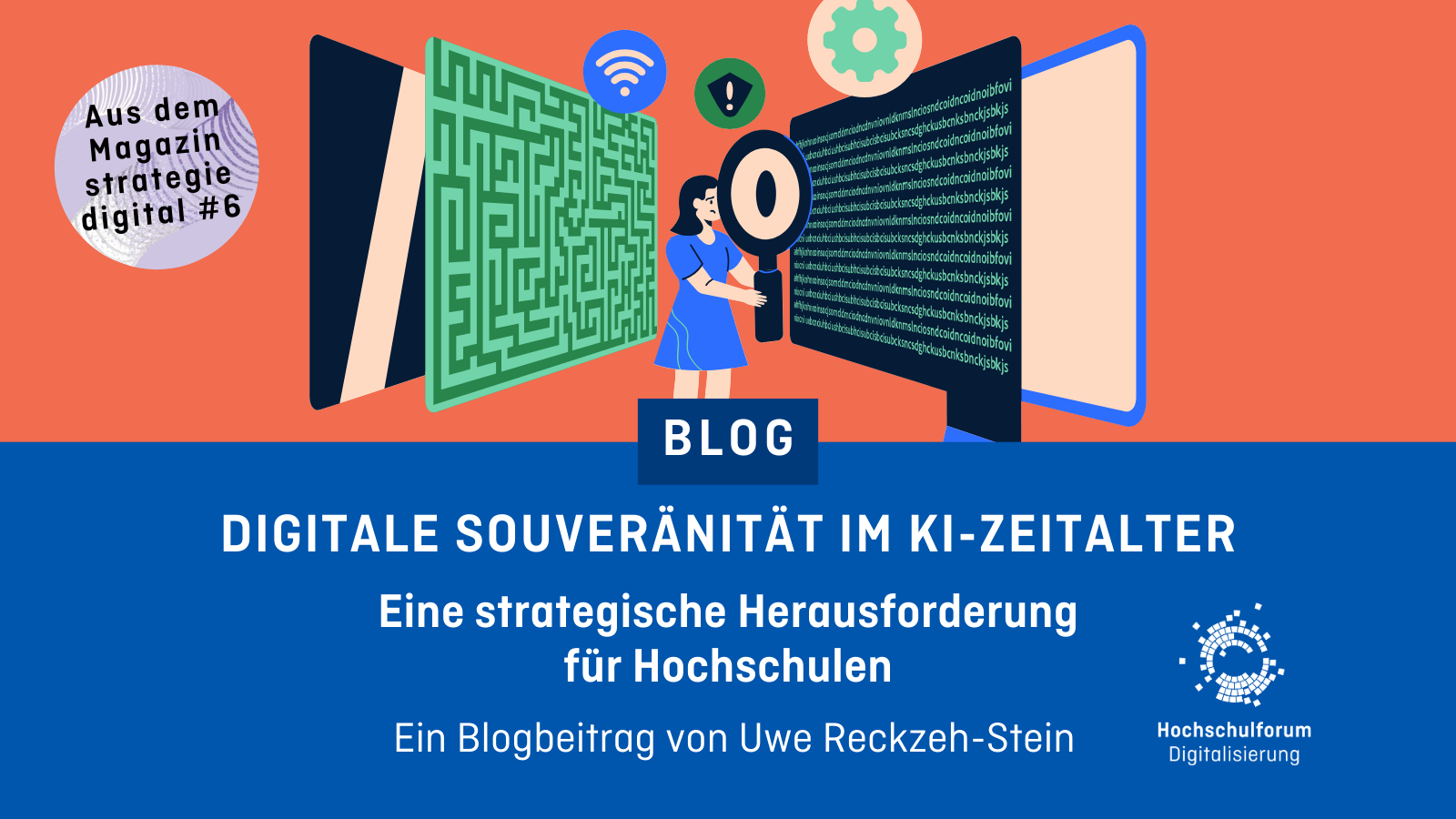Digital education and information resources for refugees
Digital education and information resources for refugees
09.12.15

The long-term integration of those seeking refuge in Germany will be one of the central tasks facing our society in the coming years. In this regard, education will have a key role with regard to integrating refugees and enabling them to gain qualifications. Higher education institutions, together with other players in the field of adult education, can provide key impetus here. For instance, many higher education institutions have already opened up their doors to refugees as guest students, and there are also public and private initiatives, for instance with regard to providing language courses.
Digital teaching and learning programmes can be instrumental in helping to inform refugees and to allowing them to gain qualifications. New possibilities for networking and assisting learners are now available, particularly since these are not limited to any specific place or time. Below, you will find an overview that we have put together of the different programmes on offer. These range from informative websites to studies at higher education institutions and from interactive language courses to supervised online study preparation. The programmes are geared towards both refugees and people who are active in this area and who act as multipliers with this material.
Do you know of any other programmes or initiatives in this area? If so, we would be very grateful if you could send a mail to info@hochschulforumdigitalisierung.de to let us know about them.
يمكنك العثور على النسخة العربية هنا
Guide to and preparation for studying at higher education institutions (HEIs)
German Academic Exchange Service (DAAD): Study-in.de – information for refugees
With this website, the German Academic Exchange Service aims to provide information to refugees who would like to study in Germany. To date, it has been available in German and English. However, summarised versions are also available in Arabic, Dari, Pashto and Urdu.
Languages: German, English, Arabic, Dari, Paschto, Urdu
Costs: Free of charge
Federal Office for Migration and Refugees (BAMF) Information website: Studying
On this website, the Federal Office for Migration and Refugees provides information about types of higher education institutions and about study fees and requirements.
Language: German
Costs: Free of Charge
German Rectors’ Conference (HRK): Information website: Studying for refugees
On this website, the German Rectors’ Conference has put together an overview of information regarding access to higher education institutions, study preparation and financial support for refugees.
Languages: German, English
Costs: Free of Charge
Learning German Online
Free German classes for people who already speak English.
Languages: German
Costs: Free of Charge
Leuphana Digital School: MOOC Ready for Study (closed)
The Mentored Open Online Course aimed to prepare young asylum seekers for studying or training in Germany. In this connection, a language course was offered and information provided by Germany and the German education system. The participants were overseen by online tutors.
Involved in this project were Leuphana University Lüneburg, Society of Academic Study Preparation and Test Development (g.a.s.t.), German Academic Exchange Service (DAAD) and the Stifterverband foundation.
Language: German
Costs: Free of Charge
EUA: Refugees Welcome Map
The Refugees Welcome Map by the European University Association demonstrates in an interactive way how higher education institutions all over Europe are responding by engaging them and assisting them in continuing their studies, research and academic careers.
Language: English
Costs: Free of charge
Federal Ministry of Education and Research (BMBF): Website and App “Recognition in Germany”
The portal provides information on the procedure for the recognition of foreign professional qualifications. Refugees who would like to have a professional qualification recognized in Germany, can use this portal to find the competent authority.
Languages: German, English, Spanish, Italian, Romanian, Polish, Turkish, Greek, Arabic
Costs: Free of charge
The app explains how to get professional qualifications recognised in Germany.
Languages: German, English, Arabic, Dari, Farsi, Tigrinya, Pashto
Costs: Free of charge
Philipps-University Marburg and oncampus/FH Lübeck: MOOC Fit4Uni
The Linguistic Engineering Team of Philipps-Universtiy Marburg together with Arab native speakers created an online course to explain the German higher education system. Main terms are explained in German and Arabic learning videos (with subtitles) to facilitate the access to university. The course additionally provides training for pronunciation and bilingual support via Facebook group. The 18th of april 2017 is the starting date of the MOOC, it’s for free and takes six weeks with a weekly workload of three hours.
Language: German, Arabic
Costs: Free of Charge
European Commission: MOOCs4Inclusion
MOOCs4Inclusion is a study commissioned by the European Commission that aims to assess the adequacy of MOOCs and free digital learning material for inclusion of migrants and refugees. One of the results of the study is a catalogue that collects different MOOCs and free digital learning resources and gives a good overview about general and specific offers. It’s possible to browse the catalogue for certain categories like purpose, type of resource or country.
Language: English
Costs: Free of Charge
HOOU: Hop On – Ways to get a professional education
The project “Hop On” was developed by inbas GmbH, TU Hamburg, Hamburg Open Online University, DQG and Kiron and aims to support refugees in their decision for a professional education. With help of a questionnaire the website provides a personal “Roadmap” on further education and informs about the differences between academic and professional education.
Language: German, English, Arabic, Persian
Costs: Free of Charge
Specialist online courses/online studies
Kiron
Kiron offers refugees a free international study programme, quickly and with a minimum of red tape. In addition to language courses and extracurricular studies, there are courses available in engineering and economics, IT, intercultural studies and architecture. Here, online and classroom teaching are combined.
Sprache: Englisch
Costs: Free of charge
oncampus GmbH (Lübeck Advanced Technical College): integration.oncampus.de
Oncampus makes available a choice of German- and English-language online courses. For example, English courses include “Innovation Management”, “Management and Leadership” and “E-Business Management”. Registering is simple and largely free of red tape; however, no certificates are issued.
Languages: German, English
Costs: Free of Charge
CodeDoor
In cooperation with Udacity, CodeDoor offers programming courses geared specifically towards refugees. Participants are provided with a laptop; in several major German cities, a workspace with internet access is also made available. A team of IT specialists oversees participants once a week in a classroom setting. Courses last 6 to 12 months; no ECTS credits can be earned.
Languages: Englisch
Costs: Free of charge
Hasso-Plattner-Institut: openHPI
The Hasso Plattner Institute website offers online courses on various IT subjects. All materials can be called up using any internet-enabled device; participation is not subject to any conditions.
Languages: German, English
Costs: Free of charge
Yoowedoo: Changemaker MOOC
In the Changemaker MOOC, entrepreneurial approaches are illustrated with a view to solving social challenges. This can relate to projects in the area of society, environment, education or culture. The course helps participants to plan their own projects step-by-step, from defining objectives, planning and implementation to developing a financial strategy and marketing. No previous knowledge is required to take part.
Languages: German, English
Costs: Free of Charge
iversity: MOOCs
On the iversity.org platform, higher education institutions and knowledge-based companies offer academic and career-advancing courses for participants from all over the world. Some of these MOOCs charge fees, but many of them are available free of charge.
Languages: German, English
Costs: Depending on the course – free of charge or up to €399
Academy Cube
Academy Cube is the only platform that combines e-learnings with job hunting. It has been developed by leading global companies to open the door to new opportunities on the international labor market for motivated talent. Academy Cube connects students, graduates and professionals with companies. Its USP is a matching system that proposes courses based on a job-seeker’s self-assessment in relation to specific qualifications required by a job profile. Through this approach, Academy Cube offers practical course content with proven relevance for companies.
Languages: Mostly English
Costs: Most of the courses are free of charge.
Learning and teaching German
g.a.s.t.: onSET Online Language Placement Test
The Online Language Placement Test is suitable for refugees who wish to attend a language course before they begin or continue their studies in Germany. The website exists in German, English, French and Arabaic; the test can be taken in German or English. The onSET result will help refugees find the appropriate language course. Colleges and language course providers will quickly be able to assign participants to the course that is best for them. Participants will receive an email with an attached PDF document confirming their test result.
Languages: German, English, French, Arabic
Costs: Free of charge for registered refugees
Goethe Institute: Welcome – learning German for refugees
The Goethe Institute offers a variety of ways to learn German, which can be used on smartphones or tablets. Information on dealing with authorities, on everyday life in Germany or on looking for work can be found here. Many programmes are particularly useful as a supplement to classroom-based courses.
Lern Deutsch (Learn German): The app is a fun way to get acquainted with the German language. It can be used both online and offline.
Costs: Free of charge
Vocabulary trainer: The app contains Level A1 words translated into Albanian, Arabic, Bosnian, Chinese, English, French, Macedonian, Persian, Russian, Serbian, Thai, Turkish, Ukrainian and Vietnamese. Users can add new words to the vocabulary trainer, which is also suitable for helping to learn any language.
Costs: Free of charge
Practice community “German for you”: With 133,500 users at present, the community offers a wide range of ways to practise and communicate. Using specific keywords, users can filter the available options to find the suitable level, topic and exercise content. The community can be used to supplement language courses and is also suitable for voluntary teachers looking for lesson material.
Costs: Free of Charge
My journey to Germany: A multilingual programme of exercises with information for people coming to Germany for the first time. This can be used to supplement language courses and is also suitable for voluntary teachers looking for lesson material.
Costs: Free of charge
German in the workplace: This programme groups together language exercises based on workplace scenarios and provides general information about working in Germany.
Costs: Free of charge
First steps in German: This self-learning programme on the Goethe Institute’s learning platform (currently 300,000 users) is available to volunteers and institutions that are interested in signing up with refugee groups with a view to helping them learn German by themselves. Since there is a clear progression and since it also follows the A1.1 learning content, it is suitable as a bridging option before an integration course.
Register at willkommen@goethe.de
Costs: Free of charge
German online Individual: The online language course consists of live online sessions and covers all content at each level. This means that the course is equivalent to classroom-based lessons.
This course will also be offered for learner groups who are all on the same level (German online group). This variant includes additional cooperative online assignments.
Costs: Individual: €638 per course and participant; group: approx. €495 per course and participant (price varies according to group size)
Series of webinars for German learning guides: The Goethe Institute offers an abundance of information online for voluntary German teachers. In five sessions, tried and trusted tips and advice are given by experienced and qualified German teachers at the Goethe Institute.
Costs: Free of charge
Deutsche Welle: Learning German
International broadcaster Deutsche Welle offers a variety of multimedia options for learning German which are available on different topics and for different levels.
Languages: Different languages, depending on the format in question
Costs: Free of charge
Deutsche Welle: Open Your Heart
Open Your Heart (German: Mach dein Herz auf) is a format that aims to help refugees to manage their first steps in Germany more easily. They can join Nadia, whose family immigrated to Germany, for a video tour of the German culture and language.
Languages: German, English, Arabic
Costs: Free of charge
German Association of Adult Education Centres (DVV): ich-will-deutsch-lernen.de
On the portal “ich-will-deutsch-lernen” (“I want to learn German”), the German Association of Adult Education Centres (DVV) offers a German course at A1-B1 levels which implements the basic curriculum for integration courses with digital learning materials. Further courses are available in the areas German For Work and Literacy In German As A Second Language. Participants who use the portal on their own are overseen by DVV tutors. Course directors can use these materials to supplement other German courses and can set up and oversee their own learning groups.
Within this framework, the DVV offers training for teachers, learning guides and volunteers.
Languages: German
Costs: Free of charge
German Association of Adult Education Centres (DVV): App Einstieg Deutsch
The app provides vocabulary and basic phrases that can be useful in various situations, such as medical sonsultations, administrative acts or emergencies. The app aims to complement the portal “ich-will-deutsch-lernen” and is part of its blended learning strategy for German as a foreign language.
Languages: Arabic, Dari, English, Farsi, French, Kurmanci, Pashto, Tigrinya, Urdu
Costs: Free of charge
German online university
DUO offers some 2,000 hours of lessons in German as a foreign language at all CEFR levels. As well as general beginners’ courses, the DUO courses serve above all as preparation for studying in Germany. The courses can be booked individually with tutorial supervision or can be licensed by institutions.
Languages: German (general information also available in English, French, Polish, Russian, Spanish, Italian, Chinese and Arabic)
Kosten: €109 to €219
LinguaTV: German for refugees
In cooperation with McDonald’s and the Federal Employment Agency (BA), LinguaTV is making 20,000 language courses with three-month licences available to refugees. The language platform is geared towards self-learners and also serves as supplementary material for classroom-based language courses. With a large selection of German courses, LinguaTV is suitable for beginners and advanced students alike. The portal contains videos that show in authentic everyday situations how native speakers use the language in context. These are supplemented by a range of online learning aids, interactive exercises, learning games and individual learning reports and groups.
From February 2016 all German courses will also be available as mobile applications.
Languages: German, English, Arabic
Kosten: kostenfrei
The Virtual Linguistics Campus: MOOC #DEU4ARAB
The MOOC #DEU4ARAB offers contrasting pronounciation training for Syrian learners of German. In two-minute videos each phoneme is being explained. Users are given the opportunity to practice the pronounciation of many phonemes that do not exist in their mother tongue.
The six-week MOOC is now open for enrolment and starts on February 1st, 2016. The course was developed by the Virtual Linguistics Campus at the University of Marburg and is made available on the integration.oncampus platform which is a project by the Lübeck Advanced Technical College.
Languages: German, Arabic
Costs: Free of charge
DaF AG (Working Group for German as a Foreign Language) at the University of Marburg: Words for Work app
With this app, words for different occupations can be learnt and reinforced – to date, the focus has bee above all on cooking, cleaning, construction and warehousing. Also integrated are terms on healthcare (safety, accidents, work clothing) and weights and measures. Every word is accompanied by a pronunciation sound file and a picture. In addition to the learning mode, there are various test modes with which users can see have much they have learnt.
Languages: German
Costs: Free of charge
busuu: Learning languages
Busuu’s interactive language-learning programme contains over 200 lessons on everyday topics, prepared in multimedia form. The German and English courses are available to Arabic-speaking users free of charge.
To date, these free courses have only been available for Android. Premium access can be activated as follows: 1. Download app. 2. Under “settings”, click on “voucher”. 3. Enter the code “Germanforrefugees” or “ماني” (the codes only work within an Arabic-speaking interface.)
Languages: German, English, Arabic
Costs: Free of charge
Goethe-Verlag and Diakonie in Niedersachen: German for Refugees app
The app provides users with their first words and sentences in German. In 100 lessons on everyday topics, the app combines text and audio training.
Once downloaded, the app can be used offline. It is available only for Android devices.
Languages: 50 languages
Costs: Free of charge
duolingo
Duolingo offers users the option of both learning languages and translating texts with the help of other users. Although the website is available in several languages, the German courses are still being set up in the case of most languages. The German course for English-speaking users is available in full.
Languages: Arabic, Chinese, German, English (US), French, Greek, Hindi, Indonesian, Italian, Japanese, Korean, Dutch, Polish, Portuguese (Brazil), Romanian, Russian, Spanish (Latin America), Turkish, Hungarian, Vietnamese
Costs: Free of charge
Workbook for Learning and Teaching German
This workbook is designed to make first steps in Germany easier and wants to encourage refugees to learn German. It is a useful and simple beginners’ guide which includes the alphabet, essential phrases, some basics of German grammar and examples for use in everyday life.
Languages: German, English, Arabic, Farsi, Dari, Tigrinya, French, Somali, Urdu, Pashtu, Russian, Turkish, Kurdish, Amharic, Oromo
Costs: Free of charge
Deutsch-to-go.de
Deutsch-to-go.de provides two audio files a week that can help users train listening comprehension. The two-minute audio texts are followed by short excercises. They are available in three different levels of difficulty.
Language: German
Costs: Free of charge
phase6 hallo Deutsch für Kinder
The app offered by phase6 and Mildenberger Verlag publishing house is geared towards children and young people who live in Germany as migrants or refugees and who have grown up with a first language other than German. With approximately 1,400 words and expressions, the basic vocabulary for German as a second language is taught and reinforced in a fun way.
Languages: German (by the end of 2016, the app is to follow for all official EU languages and for Turkish, Arabic and Farsi.)
Costs: Free of Charge
Planet Schule: Deutsch mit Socke (German with a sock)
“Deutsch mit Socke” – “German with a sock” – aims to give children with little or no knowledge of German access to the language in a fun way. Short videos each centre on a specific topic and convey simple sentence structures and semantic fields.
Languages: German
Costs: Free of charge
AMIRA
AMIRA is a programme for promoting reading skills among primary school children who are learning German as a second language. A number of picture books are available in six languages: in addition to German, there is Turkish, Russian, Italian, Arabic and English. All texts can be read out in German while the children read along.
Languages: German, Turkish, Russian, Italian, Arabic, English
Costs: Free of charge
ZUM-Wiki: Welcome to Germany
Run by teachers interested in promoting online learning, voluntary organisation ZUM uses this open portal to collect materials, information and ideas for teaching German to refugees. It also provides links to other selected websites and comments describing them. “Welcome to Germany” is geared towards course directors and to those who are learning on their own.
Languages: German
Costs: Free of charge
Federal Agency for Civic Education (bpb): Lesson material for welcome classes
On its website, the Federal Agency for Civic Education (bpb) provides materials with which refugee children or young asylum seekers can be taught in welcome classes. These include for instance materials from the areas of German as a foreign language, fundamental rights, children’s rights and democracy.
Language: German
Costs: Free of charge
Hasso Plattner Institute: mooc.house
At mooc.house, institutions or companies can offer their own content in MOOC format, for instance including specific courses for refugees. The HPI provides the technical know-how here as well as assistance in both producing and running courses. However, the content must be provided by the organisation in question.
Languages: German, English
Costs: Free of charge
Klett: Video tutorial: Teaching German
In a total of 14 videos Lourdes Ros provides advice on how to teach German. The tutorial addresses volunteers helping refugees learn German.
Language: German
Costs: Free of charge
Siemens Stiftung: KIKUS digital
KIKUS digital is an interactive language-learning software that is available in German, English and Spanish and both online and offline as a Windows application in the Siemens Stiftung’s media portal. With its play-centred approach to vocabulary training and sentence construction, it makes learning a language fun. The use of digital picture cards makes it possible to tailor language instruction to each individual child, so that even kids with a lesser command of the language of instruction can actively participate and make progress. KIKUS digital is based on the tried-and-tested KIKUS picture cards and other pictures related to experimentation. The latter depict experimentation materials of the Siemens Stiftung’s Experimento educational program. The language-learning software is intended for kindergarten and elementary school teachers and lends itself primarily to beginning language instruction. Thanks to its creative leeway, it can also be used in work with older students, e.g., for foreign language teaching. KIKUS digital was created from the partnership between the Center for Multilingualism in Early Childhood (zkm) and Siemens Stiftung.
Languages: German, English, Spanish
Costs: Free of charge
Siemens Stiftung: Worksheets for STEM teaching
With worksheets for subject teaching, the Siemens Stiftung is supporting students in understanding and practicing technical scientific vocabulary. The materials use special methodology tools for language teaching, for example, word fields, cloze tests, and word puzzles, and can be used in subject teaching for internal differentiation for students. They supplement the experimentation instructions for the topics of energy, the environment, and health, and are likewise available on the medial portal.
Languages: German, English
Costs: Free of charge
Link to worksheets for subject teaching – Energy
Lernox: Ankommen durch Sprache
Lernox collects and shares educational resources for teaching German. The platform adresses teachers, volunteers and schools helping refugees learn German.
Language: German
Costs: Free of charge
Dictionaries and translation
Refugee Phrasebook
Refugee Phrasebook assembles important vocabulary and phrases including a broad range of topics, from a simple “Hello” to “ I need to see a doctor”, covering a general set of phrases as well as sentences for juridical and medical needs. It is an open collaborative project published with a Creative Commons license reuseable for refugee aid projects everywhere. Local initiatives are welcome to adapt, print and distribute all contents of this page to support refugees in all regions.
Languages: German, English, Arabic, Albanian, Amharic, Amharic Phonetic, Armenian, Bangla, Bosnian, Croatian, Serbian, Bulgarian, Catalan, Croatian Czech, Dari, Dutch, Farsi, Finnish, Filipino, French, Greek, Hungarian, Icelandic, Italian, Kurdish (Sorani), Kurdish (Kurmancî), Lithuanian, Macedonian, Pashto, Polish, Portuguese, Romanian, Russian, Slovak, Slovenian, Somali, Spanish, Swedish, Norwegian, Danish, Tamil, Tigrinya, Turkish, Urdu, Vietnamese
Costs: Free of charge
Langenscheidt Online dictionaries
Langenscheidt offers online dictionaries with application examples, useful phrases, synonyms and pronunciation sound files, e.g. Arabic-German and German-Arabic.
Languages: English, Arabic, Chinese, French, Italian, Spanish, Danish, Greek, Dutch, Persian, Russian, Swedish, Czech
Costs: Free of charge
The Welcome ABC
This picture dictionary is designed to give refugees an introduction to the German language. It contains 150 relevant terms that can also help initial communication between refugees and aid workers. The WillkommensABC – Welcome ABC – can be downloaded free of charge as a PDF, eBook or app.
Languages: German, English
Costs: Free of charge
ICOON: Global picture dictionary
The ICOON app is a picture dictionary. A version is being prepared which, with over 2,000 symbols, photos and sentences, is to be geared specially to the needs of refugees.
Languages: German, Arabic, Chinese, English, French, Italian, Japanese, Dutch, Polish, Portuguese, Russian, Spanish
Costs: Free of charge
ICOON: First Communication Help
The “First Communication Help” PDF collects symbols from various categories that are designed to help refugees in basic communication.
Costs: Free of charge
Google Translator app
The Google Translator app translates keypad input into 90 languages. 40 languages can be translated via the language input function, while text photographed with the aid of a camera can be translated in 26 languages.
Languages: Afrikaans, Albanian, Arabic, Armenian, Azerbaijani, Basque, Bengali, Bosnian, Bulgarian, Burmese, Cebuano, Chichewa, Chinese (Traditional), Chinese (Simplified), Danish, German, English, Esperanto, Estonian, Finnish, French, Galician, Georgian, Greek, Gujarati, Haitian, Hausa, Hebrew, Hindi, Hmong, Igbo, Indonesian, Irish, Icelandic, Italian, Japanese, Javanese, Yiddish, Kannada, Kazakh, Catalan, Khmer, Korean, Croatian, Lao, Latin, Latvian, Lithuanian, Malayalam, Malagasy, Malay, Maltese, Maori, Marathi, Macedonian, Mongolian, Nepali, Norwegian, Persian, Polish, Portuguese, Punjabi, Romanian, Russian, Serbian, Sesotho, Sinhala, Slovak, Slovenian, Somali, Spanish, Swahili, Sudanese, Tajik, Tagalog, Tamil, Telugu, Thai, Czech, Turkish, Ukrainian, Urdu, Uzbek, Vietnamese, Welsh, Belorussian, Yoruba, Zulu
Costs: Free of charge
Karlsruhe Institute of Technology (KIT): Simultaneous lecture translator
The system translates German lectures simultaneously into English and is used both in KIT’s Audimax auditorium and in its other lecture halls. The translation is shown in the form of subtitles on a website that students can call up via a laptop, tablet or smartphone during the lecture. It is also possible to install the system at other higher education institutions.
Languages: English (further languages, e.g. Arabic, being developed)
News and guide for everyday life
Goethe Institute, Federal Office for Migration and Refugees, Federal Employment Agency, Bayerischer Rundfunk: App Ankommen
The App Ankommen is a project by Goethe Institute, Federal Office for Migration and Refugees (BAMF), Federal Employment Agency (BA) and Bayerischer Rundfunk.The app is a companion for the first few weeks in Germany, providing answers to practical everyday life questions. It also contains information on the asylum process and on how to find a job or a vocational training position. An introduction to the German language with many exercises that users can do on their own is also included.
Languages: German, English, French, Farsi, Arabic
Costs: Free of charge
Deutsche Welle: First steps in Germany
On its “First steps in Germany” page, Deutsche Welle provides practical information on everyday life in Germany. It also contains the latest news affecting refugees.
Languages: German, English, Arabic, Dari, Pashto, Urdu
Costs: Free of Charge
ARD: Guide for refugees
On its website, ARD makes available information on arriving in Germany and coping with everyday life there. Videos on German culture and language can also be called up here.
Languages: Greman, English, Arabic
Costs: Free of charge
Funkhaus Europa: Refugee Radio
Every day, radio station Funkhaus Europa broadcasts news specially for refugees. Information on the situation in Germany and on the political discussion is given in English and Arabic.
Languages: English, Arabic
Costs: Free of charge
HKW: Arriving in Berlin. A map made by refugees (regional)
Arriving in Berlin is a mapping project by HKW, researched and developed by Hamidullah Ehrari, Mohammad Yari, Farhad Ramazanali and Alhadi Aldebs, residents of Haus Leo, a residence for refugees in Berlin-Moabit. The map is especially meant to support refugees in answering questions like: Where in Berlin do I find free counseling services for refugees? Where can I find a doctor who speaks Farsi? Where can I attend free German classes? Where do I find a library to read, study or have access to the Internet? The website was created within the framework of Berlin Mondiale – a project of the Rat für die Künste Berlin in cooperation with the Kulturnetzwerk Neukölln e.V. With advisory support by the Flüchtlingsrat Berlin e.V. Sponsored within the Berliner Projektfonds Kulturelle Bildung.
Languages: English, Arabic, Farsi, French
Costs: Free of charge
Afeefa (regional)
Afeefa (German acronym of “All for one and one for all”) is a regional information and communication platform with, by and for refugees. It includes an interactive city map of Dresden.
Languages: German, English, Arabic, Farsi, French, Serbian, Russian, Tigrinya, Urdu, Italian
Costs: Free of charge
Chair in Business Informatics at TU Munich: Integreat
Integreat is an app that helps to send municipally relevant information to arriving asylum seekers in many different languages. The app offers a basic structure that lays the foundation for city information. This keeps municipal costs to a minimum: only municipally specific information is to be compiled and, if necessary, translated.
Languages: Multilingual
Costs: Free of charge
Förderverein Freie Netzwerke e. V.: Freifunk
Numerous local groups from all over Germany provide refugee homes with cable-free networks.
Costs: Free of charge
Federal Agency for Civic Education (bpb): Basic Law for the Federal Republic of Germany in Arabic
The Federal Agency for Civic Education published an Arabic version of the Basic Law for the Federal Republic of Germany. It is available as PDF for download on its website.
Languages: Arabic
Costs: Free of Charge
Refugeeguide
A guide for orientation and communication in Germany, that has been designed in response to common questions asked by refugees. It covers topics such as public life, personal freedom, community life, equality, environment and ecology, food, drinks and smoking, formalities and behaviour in a case of emergency.
Languages: German, English, French, Arabic, Kurdish, Turkish, Pashto, Dari, Farsi, Urdu, Tigrinya, Russian, Serbian, Mazedonian, Albanian
Costs: Free of charge


 Michael Siegel
Michael Siegel 
 Andreas Giesbert
Andreas Giesbert 
 Uwe Reckzeh-Stein
Uwe Reckzeh-Stein 